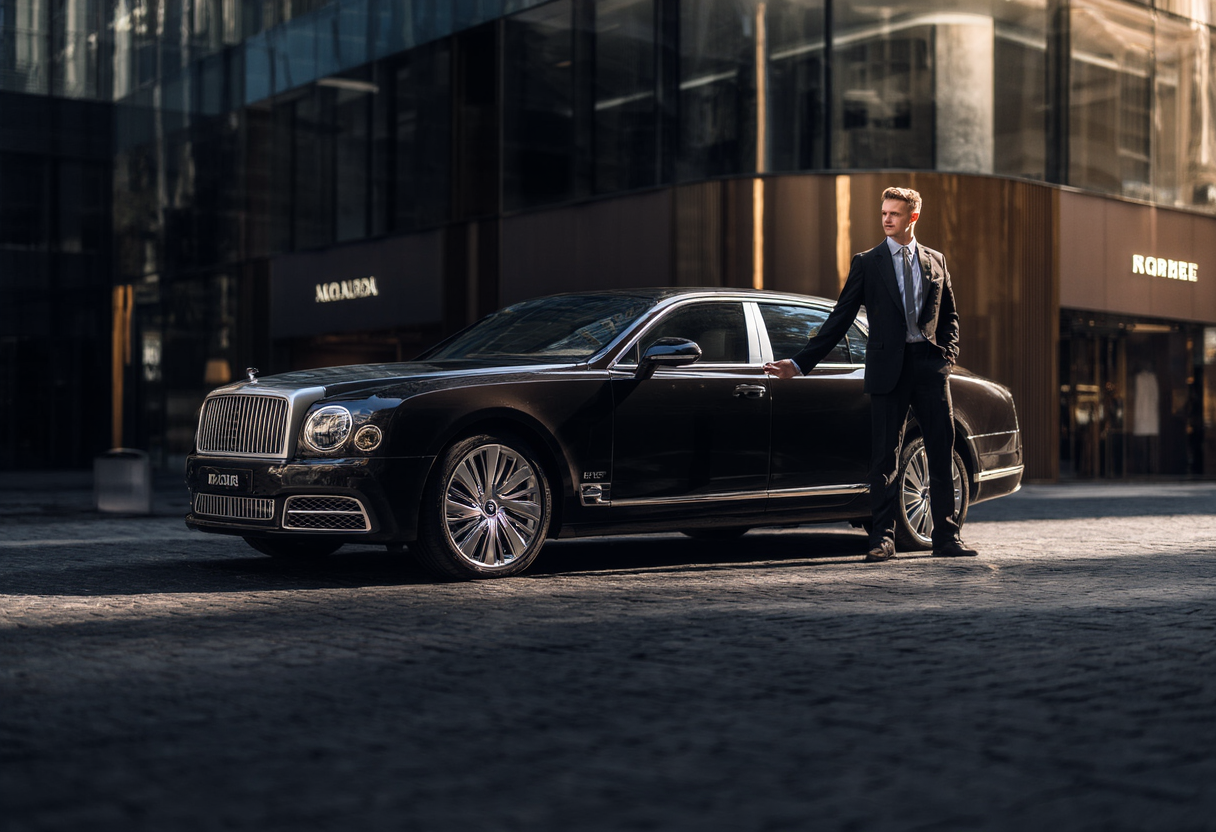Unlocking the Allure of Luxury Cars: What Makes Them So Desirable?
Luxury cars embody prestige and performance, attracting attention globally. Their allure is rooted in superior engineering, cutting-edge technology, and exquisite craftsmanship. This article explores the contributing factors that elevate luxury cars beyond mere transportation, examining cultural significance and the psychology of ownership that drives demand.
Understanding the Luxury Car Phenomenon
Luxury cars represent more than just a means of transportation; they are status symbols, embodying wealth and sophistication. The demand for luxury vehicles often stems from a deep-seated desire for exclusivity. Manufacturers of luxury cars invest heavily in unique designs and high-performance technologies, ensuring that each model stands out in a competitive market. This makes luxury cars not only desirable but also a lifestyle choice for many consumers. Furthermore, the marketing strategies employed by luxury brands often play a crucial role in shaping consumer perceptions. High-profile celebrity endorsements and limited edition releases create an enticing narrative around luxury cars, fostering an aura of mystique and desire. As a result, the appeal of luxury cars continues to evolve, influenced by societal trends and technological advancements. Ultimately, luxury cars symbolize an aspirational lifestyle, driving consumers to pursue these remarkable vehicles for personal fulfillment and social recognition.
The Technological Edge of Luxury Cars
One of the defining features of luxury cars is their integration of advanced technology. From driver-assistance systems to infotainment features, luxury automobiles often push the boundaries of innovation. Brands like Mercedes-Benz and Tesla are at the forefront of incorporating cutting-edge technology that enhances safety and driving experience. For instance, many luxury cars come equipped with adaptive cruise control and lane-keeping assistance, which not only improve comfort but also boost safety on the road. Furthermore, luxury vehicles often feature high-end audio systems and customizable ambient lighting, ensuring a tailored user experience. This focus on technology extends to the environmental impact as well, with luxurious hybrid and electric models entering the market to meet the demands of eco-conscious consumers. Thus, luxury cars combine performance with sustainability, appealing to a broader audience in today’s society. Ultimately, the technological advancements in luxury cars encapsulate a commitment to quality and innovation that is highly admired.
The Cultural Significance of Luxury Cars
Luxury cars are often intertwined with cultural narratives that define societal values. In many cultures, owning a luxury car can signify success and social status. This connection is not only prevalent in conspicuous consumption but also in the emotional value attached to these vehicles. The cultural significance of luxury cars varies around the globe, influenced by local contexts and economic conditions. For example, in some regions, luxury vehicles are viewed as a necessary accessory to a high-status lifestyle, while in others, they may represent a personal reward for hard work. The imagery often associated with luxury cars in advertising campaigns further reinforces these narratives, celebrating achievement, ambition, and the thrill of the open road. As societies evolve, so too does the symbolic meaning of luxury cars. They become markers of identity, showcasing the diversity of preferences and aspirations across different demographics.
Luxury Cars and the Psychology of Ownership
The psychology behind luxury car ownership is fascinating and multifaceted. For many, purchasing a luxury car is about more than just the car itself; it represents an emotional journey and a personal triumph. Luxury cars often evoke feelings of empowerment and prestige, allowing owners to feel a sense of uniqueness and individuality in a world that often feels homogenized. Research indicates that consumers tend to associate luxury vehicles with higher social status, which can enhance their overall sense of self-worth. Additionally, the experience of being behind the wheel of a luxury car – from the quality of materials to the sensation of smooth acceleration – creates an emotional connection that ordinary vehicles cannot replicate. This phenomenon illustrates how luxury cars fulfill both practical and psychological needs, further driving their desirability among affluent consumers.
The Future of Luxury Cars: Trends and Sustainability
As we look to the future, the landscape of luxury cars is set to change dramatically with emerging trends such as electrification and autonomous driving technology. Manufacturers are investing in sustainable practices, creating electric luxury cars that cater to environmentally conscious buyers. Additionally, with the rise of smart technology, luxury cars are becoming increasingly interconnected, offering features such as real-time traffic updates, remote vehicle access, and even enhanced security systems. These advancements not only provide convenience but also align with the evolving preferences of consumers who seek both luxury and responsibility in their purchases. Furthermore, as globalization continues to influence consumer behavior, luxury car brands are adapting their offerings to appeal to various cultural dynamics. The future of luxury cars will likely see the integration of advanced technology and sustainability as a hallmark, ensuring their continued relevance in a rapidly changing world.
Conclusion: The Enduring Appeal of Luxury Cars
In conclusion, luxury cars encapsulate a complex blend of desirability, societal significance, and technological innovation. They represent more than mere transportation; they are symbols of achievement, status, and personal identity. The allure of luxury cars lies in their ability to fulfill both emotional and practical needs, combining unparalleled performance with advanced technology and cultural relevance. As we navigate a future focused on sustainability and technological advancement, luxury cars will continue to adapt and thrive, solidifying their place in the automotive world. Ultimately, the enduring appeal of luxury cars ensures that they remain a coveted possession, reflecting the aspirations of those who drive them.
